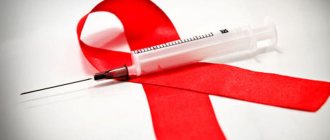Let me start by saying that this was my first experience of therapeutic fasting. Unless, of course, you count one almost full day without food during adolescence. Then I wanted to lose weight this way. But it only lasted me until the evening - then I felt bad, and the experiment ended.
A! I forgot. There was one more time.
It was before my wedding. By that time, I had been in Denmark for 1.5 months, and had become so fed up that when my mother arrived at the wedding a week before the celebration, the first thing she said was: “So. The bride won't fit in the dress"
The wedding was in May, and I bought the dress in February, while still in Russia. Moreover, the dress was expensive and bought with her own hard earned money. Therefore, there was no question of going out and buying a new one. It was decided to lose weight.
Since it was still difficult to resist delicious Danish products, I planned to “just” fast on juices the day before the wedding... store-bought juices from a bag (full of sugar!). Oh God! If only I had known then that this was a disgusting idea. But then I did not have a nutritionist education, and I listened to my mother. It’s not surprising that by lunchtime I was practically green all over. And it was decided to stop the fast.
The whole future family pulled me into the dress. As a result, it survived the service in the church, and even withstood a photo shoot, but at a dinner party it still burst on the back... It’s good that, in addition to the lock, there was also lacing. Wedding dress manufacturers are smart people. They know that sometimes brides change sizes.
Miso soup with parsley
So, let's get back to fasting. Briefly about how therapeutic fasting works and why it is needed:
When we starve, we are not the only ones starving, but also our entire microflora
, that is, the entire “population” of the gastrointestinal tract, including good bifidobacteria and enemy ones - other bacteria, fungi, parasites.
Therefore, the point of fasting is not to lose weight, but to get rid of as many harmful microorganisms as possible in the simplest way. It is their death that causes reactions such as headaches and weakness. After all, there is a strong detoxification of the remnants of these microorganisms.
Most of them live in the large intestine. That is why during or after fasting it is often recommended to wash the intestines in different ways (enema, colon hydrotherapy of varying intensity). Such measures help remove toxins from the body as quickly as possible, which, in turn, reduces painful symptoms.
Ideally, after a cleansing fast, much fewer harmful microorganisms should remain in the body. But we cannot “kill” only them. Our bifidobacteria also die. This is why it is VERY important what you eat in the days after fasting. The diet must be chosen so as to feed the microflora we need and starve the harmful ones.
What happens during fasting?
Our gastrointestinal tract is designed in such a way that it works in two modes - digesting food and cleansing the body. And when the process of digesting food starts, the cleansing process stops, and on the contrary, when the process of digesting food stops, the cleansing process begins. Thus, to start the process of cleansing the body, you need to stop eating.
How long after giving up food does the cleansing process begin? Everything here is individual. On average, the cleansing process is thought to start when we skip two meals from our normal diet.
There are many methods and types of therapeutic and fasting fasting. The practice of therapeutic fasting became known in our country back in Soviet times thanks to Professor Nikolaev, who noticed that his patients’ symptoms of schizophrenia were alleviated when they refused food. He did not follow the traditional method of force-feeding the patients, and decided to observe what would happen.
And these observations allowed him to defend his doctoral dissertation in 1960 on the topic “Unloading-dietary therapy of schizophrenia and its physiological basis.” Does fasting really have such miraculous properties? Let's try to look at the main advantages of fasting and understand what happens during fasting:
- Fasting helps you lose weight.
- Fasting allows you to experience the taste of food more vividly.
- Fasting starts the regeneration process.
- Fasting increases intelligence.
- Fasting: what happens in the body?
Fasting helps you lose weight
This is the first and perhaps most obvious advantage. Fasting helps you lose extra pounds. Contrary to popular belief, extra pounds are not just fat, which in itself is not so harmful, except for the strain on the heart (we’ll talk about this below). But most often the problem is much more serious, and excess weight is caused by the presence of toxins.
The modern diet of most people, to put it mildly, leaves much to be desired, and this leads to the fact that the body simply cannot cope with the abundance of toxins that enter it with food. This leads to the fact that these toxins are not removed from the body, but are deposited wherever possible, and this leads to excess weight.
When losing weight, a person does not always lose weight quickly. This is determined by the metabolic rate. To speed up your metabolism, you need to combine fasting with physical activity. It is important not to overdo it - running 10 kilometers while fasting is clearly not worth it; even if food is regularly supplied to the body, it is a heavy load.
But 20-30 minutes of light physical activity a day can speed up your metabolism. Walking in the fresh air will also be beneficial. When we move, energy moves in the body, and this directly affects the rate of weight loss. Therefore, while fasting, lying in front of the TV is not the best idea.
Excess weight is not only not aesthetically pleasing, but, as mentioned above, it can be very detrimental to the cardiovascular system. This is evidenced by research results: www.eurekalert.org/pub_releases/2018-03/esoc-son031418.php. And this is quite logical: excess weight is always an additional burden on the heart. And this is far from the kind of load that can be useful, as with physical exercise.
Because during physical exercise this load is temporary, with subsequent opportunity for rest and recovery. In the case of excess weight, this is a constant load that simply wears out the heart. But this is just the “tip of the iceberg”. As mentioned above, excess weight is most often the cause of slagging in the body, and this can cause not only heart problems, but also many other diseases. Therefore, losing excess weight is an important task that fasting can help you cope with.
Consequences of fasting for the human body. Reference
During the first days, the fasting person has pale skin, the smell of acetone from the breath, a white coated tongue, weakness and an unhealthy shine in the eyes. All this against the backdrop of headaches and a feeling of complete exhaustion. The next stage is gradual adaptation to hunger and the body’s transition to self-eating, which occurs in 2-4 days. Weakness remains, but the feeling of hunger practically disappears. By the 4-7th day, the so-called supercompensation occurs, when the body completely switches to using only internal reserves. There comes a strict economy in energy consumption, so metabolic processes slow down significantly. You don’t even want to drink, because fat oxidation releases a significant amount of water.
If a person has a lot of fat deposits, then the process of fasting is easier, since it is the fat involved in metabolism that is consumed first, and as long as there are fat deposits, they will be consumed and maintain a more or less normal state of the body. But when there is no more fat, then first of all, various metabolic systems in the body suffer: the same fat, carbohydrate - all types of metabolism are disrupted and under-oxidized products accumulate in the body, products that should normally be broken down. The liver and kidneys work poorly, toxins and salts accumulate, poisons are formed, and this in turn affects the central nervous system, the cerebral cortex.
For some, significant damage begins within 10 days - cells die and are not restored. If a hunger strike lasts three weeks, then it is most dangerous. If then you do not feed the person paraenterally, or do not help him, he can die at any moment.
During the so-called dry fast, irreversible processes begin in the body already on the third day. But it is very difficult to save a person after five to seven days of dry hunger strike. The main danger with the so-called dry fast is dehydration (dehydration), loss of water below the physiological norm. Dehydration of the body by just a few percent leads to disruption of its vital functions. If the amount of water that a person loses reaches 10% of body weight per day, a significant decrease in performance occurs, and if it increases to 25%, this usually leads to death. When the body loses 1-5% of fluid, acute thirst, poor health, slow movements, drowsiness, redness of the skin, fever, nausea, and upset stomach appear. With a loss of 6-10% - shortness of breath, headache, tingling in the legs and arms, lack of salivation, loss of ability to move and impaired speech logic. With a loss of 11-20% - delirium, muscle spasms, swelling of the tongue, dullness of hearing and vision, cooling of the body.
According to experts, during any fasting the body’s adaptation mechanisms may fail.
Fasting allows you to experience the taste of food more vividly
Food is a source of pleasure, as nature intended. When we eat food that we like, it triggers the release of dopamine. During fasting, the body does not receive this same dopamine, what happens? What happens is that the dopamine receptors become more sensitive, and then when we start eating again, we feel more pleasure from those foods that had become completely ordinary before the fast.
The typical principle of increasing the body's tolerance works here. Any pleasure we experience is a release of dopamine. For example, why do drug addicts have to constantly increase their dose? The fact is that the body developed tolerance to yesterday’s dose, in other words, it began to release less dopamine. And in order to get the same pleasure today as yesterday, a person is forced to increase the dose.
Much has already been said about the fact that food is, in a sense, a drug, and in this case this statement could not be more relevant, because the principle of getting pleasure from food is the same. You can easily see this for yourself. If you eat your favorite dish every day, in a month you will eat it like grass - without any emotions, and in another month you will hate it. On the contrary, if you refrain from eating your favorite dish for some time, then the feeling of pleasure will be much brighter. Because the body has become unaccustomed to this dish and, with its new appearance in the diet, reacts to this with a much greater release of dopamine.
Based on this, fasting can also help reduce the amount of food consumed. As mentioned above, when the body develops tolerance to one or another type of pleasure, it is necessary to constantly increase the dose so that this pleasure becomes bright and rich again. But this is a road to nowhere. In the context of nutrition, this leads to overeating, and the volume will grow exponentially.
And fasting can solve the problem. After fasting, your normal diet will give you a lot of vivid emotions and sensations, and you will feel it yourself. Moreover, you will begin to experience joy from simple, ordinary plant foods. And perhaps this will allow you to give up junk food.
Is it possible to lose weight by fasting?
Lose weight to death: the dangers of unqualified nutritionists
Today, a person with any education can become a nutrition specialist.
Therapist Nadezhda Chernyshova notes that fasting definitely does not help in weight loss - only in the short term, namely at the moment when a person does not eat.
“But when the fasting cycle ends, psychological factors are also imposed, and the person begins to eat uncontrollably,” she told Izvestia. - This does not always happen, but often. A period of uncontrollable eating begins, and a person quickly gains back everything that he has lost, and even with some weight gain. Such weight fluctuations are harmful.
Nutritionist Natalya Kruglova notes that hunger is not a physiological state for the body, but a big stressor, and one cannot expect that it will bring great health benefits. She also points to possible mental disorders due to fasting. The doctor noticed that fasting does not lead to weight loss, because it returns immediately after a person returns to his usual diet.
So that there is no food
Photo: Pixabay
Chernyshova adds that the benefits of intermittent fasting have not been proven.
They're crazy about fat: what diets do Russians most often search for on the Internet?
Not all weight loss methods work as advertised
“Yes, there is such a thing as “autophagy” - when the body, with the help of its immune cells, eats all the fragments of cells, microbes, unnecessary substances, that is, it sort of restores order until we eat,” she said. - This is based on research data - and if you don’t go deeper, everything sounds good. The research was actually done on yeast cells, and I think on mice. On a person - no. What is good for yeast is not necessarily what is good for humans.
Fasting triggers the regeneration process
Fasting triggers the production of growth hormone, which helps restore damaged cells and tissues. Scientists at the University of Southern California came to this conclusion during experiments on laboratory mice. Thus, a period of hunger in rodents triggered the production of hormones in the pancreas in their body, which led to the restoration of damaged cells and tissues, as well as rejuvenation of the body: www.cell.com/cell/fulltext/S0092-8674(17)30130-7.
But that's not all. The study found that the rodents' blood sugar levels normalized, again due to the fact that the process of producing hormones in the pancreas, and in particular insulin, was launched. Thus, fasting can naturally restore the process of insulin production in the body and, therefore, cure diabetes without medication.
The process of triggering the production of hormones also leads to the fact that a person’s immunity increases. Californian scientists came to this conclusion: news.usc.edu/63669/fasting-triggers-stem-cell-regeneration-of-damaged-old-immune-system/. In their research, they discovered that during a three-day fast, the immune system is regenerated and, moreover, the process of formation of white blood cells, which are more effective in fighting disease, is launched: so to speak, white blood cells, version 2.0.
Thus, the myth that fasting weakens the body and should never be practiced during illness is nothing more than a myth. It is fasting that starts the process of activating the immune system and restoring damaged organs and tissues. Even simple observation of animals allows you to notice that as soon as they get sick, they refuse to eat for some time.
Those who have pets have probably been convinced of this more than once. And all because animals have this at an instinctive level. But people have gone too far from their nature and therefore stopped hearing its voice.
Who definitely shouldn't go hungry?
“Fasting is contraindicated for pregnant and lactating women, children and adolescents, and people with diseases of the digestive tract,” explains Kruglova.
Hunger can provoke an exacerbation of inflammatory diseases of the digestive tract - gastritis, gastroduodenitis, peptic ulcers, as well as cause gout and migraines.
“If a person has diabetes and long periods between meals are contraindicated, or if he has biliary dyskinesia, or has a gallbladder removed, or has gastritis, then long-term fasting is generally contraindicated,” says Chernyshova.
So that there is no food
Photo: Depositphotos/AntonioGuillemF
Elena Maslova, an endocrinologist at the MEDSI clinic in Krasnogorsk, also warned about the dangers of intermittent fasting. She noted that this method changes metabolism, which can have a critical impact on health. This is especially harmful for diabetics and those suffering from chronic diseases of the liver, kidneys, and gastrointestinal tract.
No smoothies: doctors named the most harmful foods for breakfast
These included muesli, juices and instant cereals
All experts emphasize that you can fast only after the attending physician allows it - and under his control.
“Ideally, this should be your own good therapist, who can provide guidance in various areas and, if necessary, consult with someone else,” says Chernyshova.
Fasting improves intelligence
During fasting, a phenomenon called ketosis occurs: during the onset of carbohydrate starvation of cells, the body begins to break down fat in order to provide nutrition. And according to Eric Verdin of the Gladstone Institute in San Francisco, this process leads to both an overall improvement in well-being and a positive effect on the brain. This is also confirmed by neurophysicist Mark Mattson from Johns Hopkins University. According to him, fasting has a direct positive effect on the activation of thought processes: bbc.com/worklife/article/20160930-can-giving-up-food-make-you-work-better.
Animal studies tell us the same thing: augusta.pure.elsevier.com/en/publications/intermittent-fasting-attenuates-increases-in-neurogenesis-after-i. Thus, during fasting, the animals’ memory improved. This was noticed while observing laboratory mice in a maze. An increase in the number of neurons in the hippocampus, the center responsible for short-term memory, was also noted.
The total number of neurons in the brain also increased by 30%, meaning brain efficiency increased by about a third. Such effects suggest a reduction in the risk of dementia and an increase in stress resistance by strengthening the nervous system.
Why is this happening? Most likely, this is what nature intended. Hunger is stress: if the body feels that the process of consuming food has stopped, this may indicate that resources have run out, which means that you need to connect reserve capabilities to search for them. This may explain such an increase in the efficiency of brain activity: it is simply necessary from the point of view of the survival of the individual.










